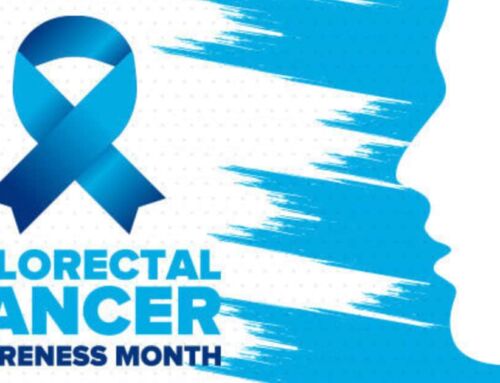Do you have a family history of gastrointestinal issues? It’s important to know since some digestive and stomach conditions are hereditary, which means they can be passed to you. However, genetics are complicated, so it doesn’t definitively mean that one of your parents’ conditions will be passed to you. It just signifies an increased risk.
If you have a family history of gut problems, you can take steps to reduce the risk of developing them yourself. In this article, I’ll explain the role genetics can play in your digestive health and some things you can do to reduce your risk of developing digestive conditions.
Genetics Role in Digestive Health
Some digestive conditions have a strong genetic component, meaning specific genes can increase the likelihood of developing certain health illnesses. If you have close relatives with conditions like:
- Crohn’s disease or ulcerative colitis: You’re at a higher risk of developing inflammatory bowel disease (IBD) if you have a first-degree relative (parent, child, or sibling) with this condition. The genetic risk is greater with Crohn’s disease than with ulcerative colitis. Also, those with IBD are at higher risk of colon cancer due to potentially experiencing chronic inflammation of the large intestine.a
- Celiac disease: It is estimated to affect 1 in 100 people worldwide. The risk rises to 1 in 10 if a close family member has it. Specific genes influence this autoimmune reaction to gluten.
- Colon cancer: Certain gene mutations related to colon cancer can be inherited. Having a close family member diagnosed before age 60 will nearly double your risk. The good news is that colon cancer is highly treatable and often curable when it is localized in the bowel.
While genetics play a role in creating a predisposition for digestion conditions, your family history is only a small part of your gut health. For example, the gut microbiomes of two closely related family members can be significantly different, which impacts their health in unique ways.
The differences in the microbiome are primarily attributed to other non-genetic lifestyle factors and our environment.
Lifestyles and Habits
Families often share similar lifestyles and habits that can impact digestive health, such as:
- Diet: Shared dietary patterns, unhealthy food choices, and lack of fiber can contribute to issues like irritable bowel syndrome (IBS) and constipation.
- Exercise: Staying active increases blood flow to the muscles in the digestive system, which causes them to work more quickly and effectively. Research also suggests that exercise affects the balance of bacteria in the gut, known as the gut microbiome. Some of the benefits of regular physical activity are:
- Regular bowel movements.
- Improves the health of your gut microbiome.
- Boosts your immune system.
- Increases your metabolism.
- Reduces stress.
- It can lower the risk of colon cancer.
- Alcohol: Alcohol can cause inflammation throughout your digestive system and affect your entire digestive tract. Heavy alcohol consumption can increase your risk for different digestive conditions, like acid reflux, liver disease, esophageal and colon cancers.
- Smoking: Smokers have a higher risk of Crohn’s disease, esophageal cancer, and peptic ulcers compared to non-smokers.
- Stress: Chronic stress can exacerbate existing digestive problems and potentially contribute to new ones.
We know that most of our disease risk is attributed to our environment, diet, and lifestyles. This is important to understand so that you realize the potential adverse effects of adopting poor habits from your family members.
Family Health Information
If you are aware that there is a history of gastrointestinal illness in your family, there are some things you can do to reduce your risk of developing the same problems. Being aware of the importance of your family health history empowers you to:
- Discuss with family members: People are often unaware that they should communicate their health conditions to other family members. Initiate these conversations so that you know if a close family member has experienced a digestive health condition.
- Talk to your doctor: Share any family history of digestive conditions, even if you’re not experiencing symptoms. This helps personalize your risk assessment and guide preventative measures.
- Be proactive: Early detection and intervention are crucial for managing digestive conditions. Your doctor may recommend earlier or more frequent screenings based on your family history. For example, you may receive your first colonoscopy before age 45 if you have a family member who has been diagnosed with colon cancer or polyps.
- Make informed lifestyle choices: Knowing your genetic and environmental risks can motivate you to adopt healthy habits like a balanced diet, regular exercise, stress management, and smoking cessation. These lifestyle choices can help keep your immune system strong and reduce inflammation.
Discussing your family history with your doctor can help to reduce your risk. Regular checkups and screenings will help you stay on top of potential digestive conditions. By implementing a few lifestyle changes and some knowledge, you can reduce your risk of developing these problems or better manage your symptoms.
If you have any concerns about your risk of GI illness or questions regarding your digestive health, you can request an appointment online or call our office at 210-615-8308.






